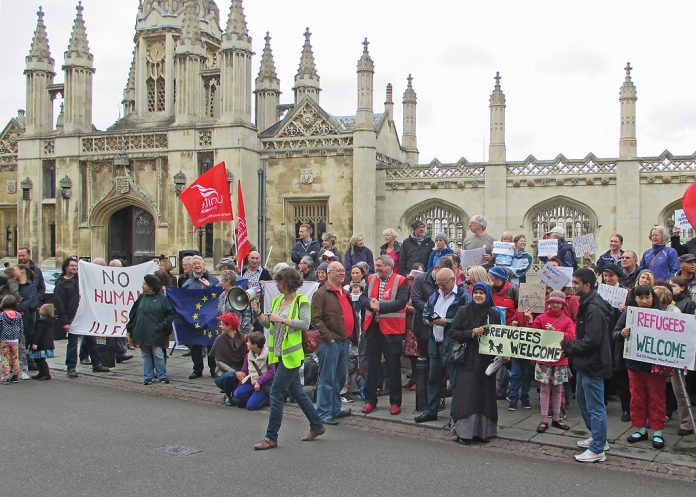
Both refugees and local councils need clear information for the Syrian refugee resettlement programme to be a success in the long term, Open Access reports
Despite progress being made, it will be “a significant challenge” to resettle 20,000 Syrian refugees in the UK by 2020, the Public Accounts Committee is a warning.
They say a lack of clarity around the responsibilities of participating councils and the entitlements of the people they are trying to help could threaten the long-term success of the Syrian Vulnerable Persons Resettlement Programme.
After almost six years of bloody civil war in their country, Syrians make up the largest refugee population in the world. It was announced on 7 September 2015 that Britain would resettle up to 20,000 Syrian refugees by 2020.
Refugees ‘don’t know what is expected of them’
Councils volunteering to take part in the programme are confused about what they are expected to provide and exactly how it should be funded. As Open Access reported in November 2016, some councils have expressed serious concerns about provided support when budgets are already stretched. Meanwhile, some refugees are uncertain about what they are entitled to and what is expected of them.
They also say the Home Office should improve the amount of English language teaching being provided, as speaking English is essential for integration. An extra £10 million in funding should boost the number of hours of tuition from 4 per week to 10 per week during refugees’ first 3-6 months in the UK – but it’s not clear that this will be enough.
“This is a voluntary programme, but one with significant ambition, and it is vital councils’ initial pledges of help translate into firm offers of accommodation, support and services for refugees,” Meg Hillier MP, PAC Chair, said.
“Central government must carefully monitor this process and also be clearer with local authorities, already wrestling with significant financial challenges, about what they are expected to take on. More must also be done to ensure refugees understand the programme, not least their entitlements and restrictions.”
Victims of torture and violence not getting the specialist support they need
“It is a stark fact that more than half of the refugees resettled under the programme by the end of June last year had suffered torture or violence and it is critical that such people receive specialist support,” Hillier also commented.
The committee says it is “not yet clear whether survivors of torture or violence are getting the specialist help they need”. The MPs are calling on the Government to ensure a plan is in place to properly support refugees in need of specialist services.
“When called upon by the government, councils responded quickly, offering their support to make sure vulnerable refugees had a safe place to call home,” Councillor David Simmonds, Chairman of the Local Government Association’s Asylum, Migration and Refugee Task Group, said in a response to the report.
“The focus is now on ensuring families are well supported. Councils are and will be helping some of the most vulnerable families fleeing Syria who will need access to ongoing support services to help them cope with injuries, disabilities and recover from the severe trauma they may have experienced.”










